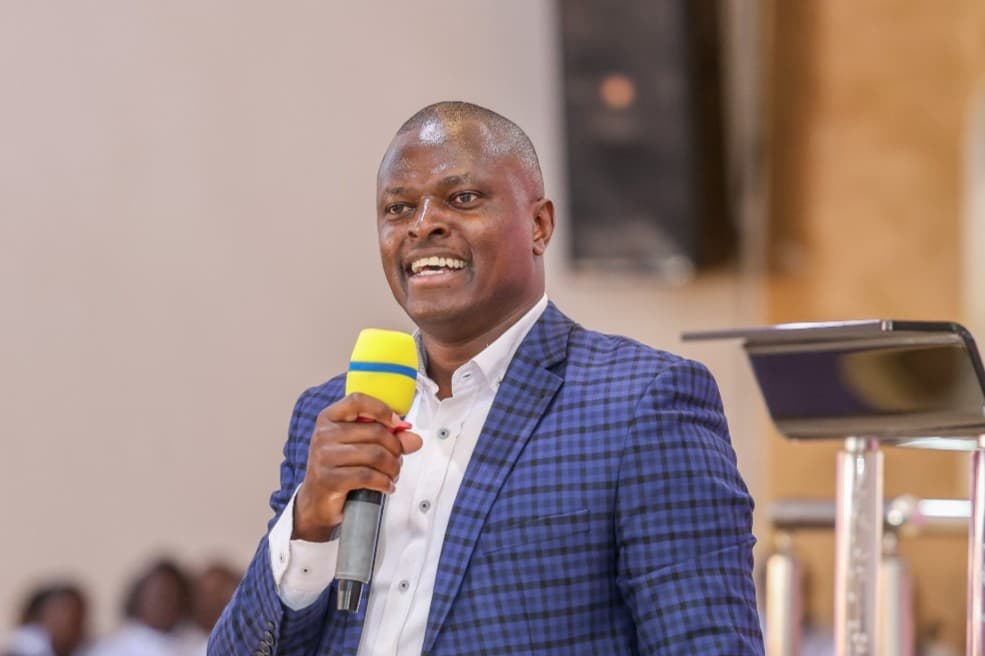We're loading the full news article for you. This includes the article content, images, author information, and related articles.
Kiharu MP Ndindi Nyoro challenges the government to match World Bank funding for the Nyota youth program, proposing a Sh100,000 grant per beneficiary and questioning the state's financial commitment amid rising national debt.

Kiharu Member of Parliament Ndindi Nyoro has publicly called on the Kenyan government to double the financial support offered to young entrepreneurs under the National Youth Opportunities Towards Advancement (NYOTA) programme. Speaking on Friday, October 24, 2025, during a nationwide validation exercise for applicants, Nyoro proposed that the grant for each beneficiary be increased from the current Sh50,000 to Sh100,000. His proposal is contingent on the government matching the financial contribution of the World Bank, which is currently the sole funder of the initiative.
“If the World Bank gives Sh20 billion for youth empowerment, the government should at least match it. That way, instead of giving our youth Sh50,000, they can receive Sh100,000 to start businesses and advance their skills,” Nyoro stated. The legislator also criticized the government for what he termed as taking undue political credit for the program without committing domestic resources. “The Nyota programme is not part of the government's revenue or debt. It is entirely funded by the World Bank,” he asserted, urging for tangible investment from the national treasury.
The NYOTA programme is a five-year initiative by the Government of Kenya, developed in partnership with and funded by the World Bank, aimed at tackling youth unemployment. Officially launched in October 2025, the project targets unemployed and underemployed Kenyans aged 18 to 29 (up to 35 for persons with disabilities) who have attained a Form Four level of education or below. The program has several components, including providing Sh50,000 non-repayable start-up grants for 100,000 young entrepreneurs, mentorship, and skills training. According to government statements, the selection process involves drawing 70 beneficiaries from each of the country's 1,450 wards.
In addition to the business grants, the NYOTA project includes an “On-The-Job Experience” (OJE) component for 90,000 youth and skills recognition for 20,000 others. A unique feature of the program is its integrated savings plan; all participants are automatically enrolled into the National Social Security Fund (NSSF) Haba Haba scheme. Under this scheme, NSSF contributes Sh1,000 per month to each youth's account for the first six months to encourage a savings culture.
Nyoro's call comes against a backdrop of significant economic challenges in Kenya, including high youth unemployment and rising public debt. The legislator connected his proposal to the country's borrowing patterns, questioning the government's priorities. “Kenya has money, we borrow Sh3.5 billion every month. Can't we afford to add Sh5 billion to support the Nyota youth programme?” he posed. This sentiment echoes earlier statements where he highlighted that the country had borrowed approximately one trillion shillings in the past eight months.
The NYOTA initiative is one of several government efforts to address youth unemployment, a persistent issue identified as a major developmental challenge. Past programs like the Youth Enterprise Development Fund (YEDF) have aimed to provide similar support, though studies have shown mixed results, citing challenges such as mismanagement, corruption, and inadequate funding. The government has presented the NYOTA programme as a core part of President William Ruto's Bottom-up Economic Transformation Agenda (BETA), designed to create opportunities at the grassroots level. However, officials have confirmed that individuals with outstanding debts from other government loan initiatives, such as the Hustler Fund, will not be eligible for the NYOTA grant until they clear their balances.
The debate surrounding the NYOTA fund highlights a critical policy crossroad for Kenya: the balance between leveraging international donor support and mobilizing domestic resources for sustainable development. If the government were to adopt Nyoro's proposal, it would significantly increase the capital available to young entrepreneurs, potentially fostering more substantial and resilient startups. This could have a positive ripple effect on local economies, contributing to job creation and poverty reduction, which are key goals for Kenya and the wider East African region.
However, such a move would also require a substantial financial commitment from the Kenyan exchequer at a time when public debt is a major concern. The discussion raises important questions about fiscal responsibility and the strategic allocation of borrowed funds. The success of the NYOTA programme, whether at its current Sh50,000 grant level or an increased Sh100,000, will be closely watched as a potential model for youth empowerment initiatives across East Africa. Its implementation and outcomes will likely inform future strategies for tackling the region's youth bulge and harnessing its demographic potential for economic growth.
Keep the conversation in one place—threads here stay linked to the story and in the forums.
Sign in to start a discussion
Start a conversation about this story and keep it linked here.
Other hot threads
E-sports and Gaming Community in Kenya
Active 9 months ago
The Role of Technology in Modern Agriculture (AgriTech)
Active 9 months ago
Popular Recreational Activities Across Counties
Active 9 months ago
Investing in Youth Sports Development Programs
Active 9 months ago
Key figures and persons of interest featured in this article